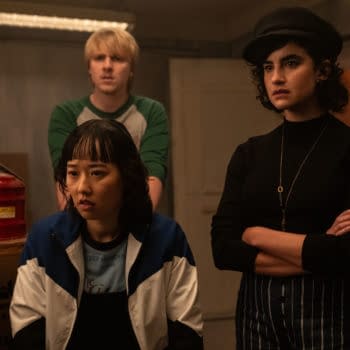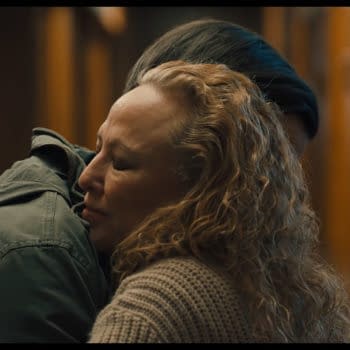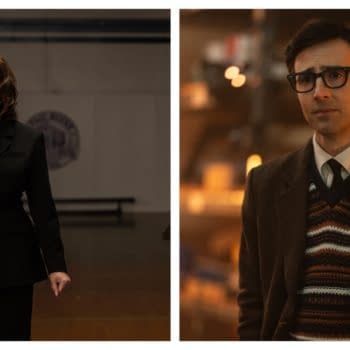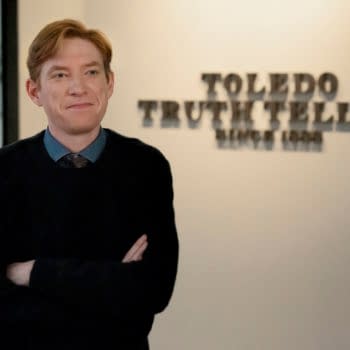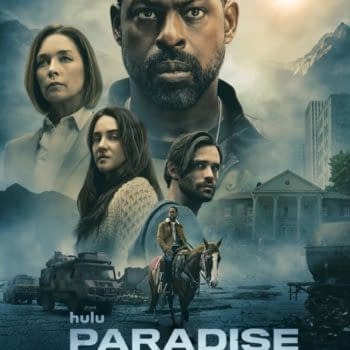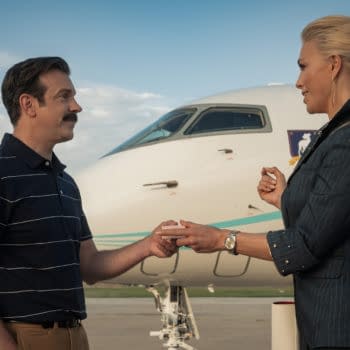Posted in: Max, TV | Tagged: The Pitt
The Pitt Supervising Sound Editor on Bringing Authentic ER Experience
Supervising sound editor Bryan Parker (Get Out) spoke with us about bringing an authentic experience to HBO Max medical drama The Pitt.
Noah Wyle is undoubtedly no stranger to playing beloved medical doctors, given his memorable run on NBC's ER as Dr. John Carter. In the HBO Max series The Pitt, Wyle resumes that journey as Dr. Michael Robinavitch, reuniting with ER writer R. Scott Gemmill, who created the series that acts as a spiritual successor to the NBC series. As the title suggests, the series occurs at the Pittsburgh Trauma Medical Hospital's ER, nicknamed "The Pitt" by its staff. As part of bringing that authentic experience, Gemmill brought in supervising sound editor Bryan Parker, who has worked on over 200 projects since emerging in the scene in 2006 across film and television. Among his most notable works are Neon's The Bad Batch (2016), Universal's Get Out (2017), Lionsgate's Hell or High Water (2016), and Annapurna's If Beale Street Could Talk (2018). Parker spoke to Bleeding Cool about how he found his way to the medical drama, working with Gemmill, emphasizing the authentic sounds of an ER over thematic music, research, and more.
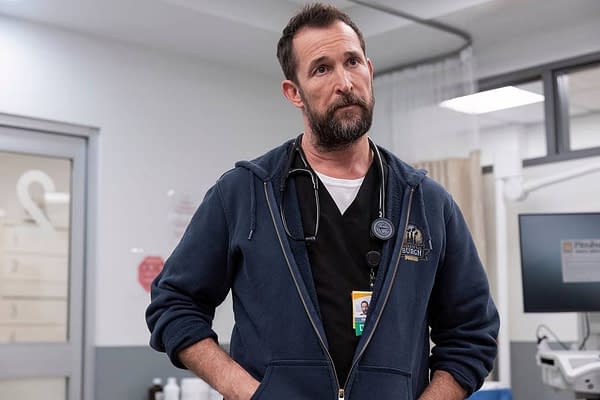
The Pitt Sound Supervisor Bryan Parker on Attention to Detail in ER
Bleeding Cool: How did you get involved with 'The Pitt?'
I've worked on a couple of projects with producer Terri Murphy, and when this one came up, she thought I'd be a good fit for it. She's worked with John Wells Productions for a long time. Their relationship goes back a long way. She and I worked together on a pilot that eventually became 'Rescue Hi-Surf,' then we did 'Mrs. Davis' together, 'Emperor of Ocean Park', and now 'The Pitt.'
What's it like working with Scott as a creative?
He's wonderful. He gives us a lot of runway to bring ideas. He's clear about the broader goals for the show, and then he is open to our suggestions or ideas for how to accomplish those goals.
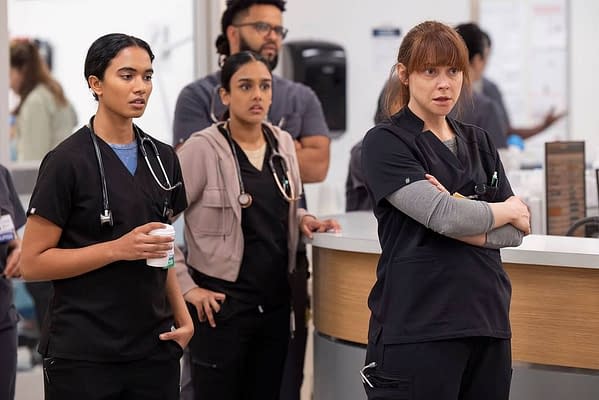
What are some of the biggest challenges of doing a medical drama as this compared to your other work?
Well, the medicine must be accurate even when it's not the focus, because there's a segment of the audience that's quick to point out inaccuracies, and that's good. The accountability there is good for us. So fortunately, we had Dr. Joe Sachs with us at spotting and the mixed playbacks. He was willing to go just as deep as I wanted to go with my question, because I'm curious about stuff. I want more than just a surface-level understanding of, "Okay, cool. Scalpel, guts, gory sound, move on with your day." I want to understand, "Okay, so is he cutting through two different layers of here, what does they mean when they say 'fascia '?" He would answer pretty detailed questions I had during spotting sessions about the procedures themselves and the environment they're in, and so based on that information, my team and I would build the sounds in accordance with what Scott's goals were and what the realities of the medicine were. We then play it back for them, and Dr. Joe says either "Yes, that's exactly what hip reduction sounds like" or "Give me something a little bit bassier, because you really feel it in your body when you reset someone's hip," so we had a good feedback system and a good sort of loop there.
Aside from Dr. Joe, were there any other ideas as far as the methodology and research? Did you or any of your crew think about just going to an actual hospital to observe or study other shows to reference, to see how they executed it? How did the prep work?
Yeah, we've talked about…I tried to get access to an emergency room to record some stuff, but as you might imagine, the notion [laughs] of some bearded stranger with a microphone and a whole recording rig just walking into a hospital might set off some flags, so that didn't go anywhere. I didn't reference too many other shows in sonic aesthetics only because a lot of those shows lean on music quite a lot, and that's not a big component of what pushes our show forward. There's a little bit of music in it in a few places, but largely it plays dry, so we spent more time looking at the floor plan, looking at the maps, comparing the layout of the emergency room and the distance between this action and that action, and building off camera, many stories into the soundscape behind us.
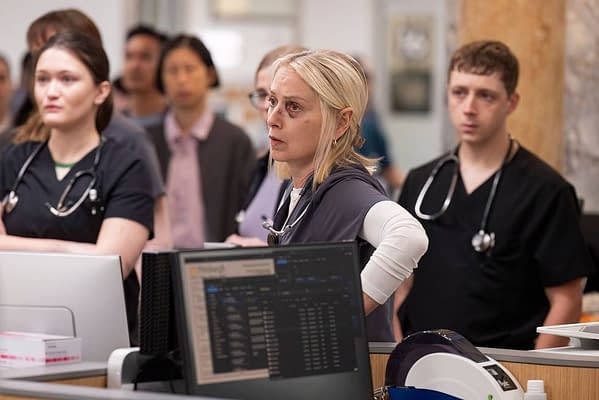
What was your most difficult sequence to pull off this season?
Most difficult…There's a part in 104 ('10:00 A.M.') where we're managing a bunch of different perspectives as the young woman, who has [a dose of] Narcan administered, is in her room. The father of the overdose case comes around. Those environments are fairly close to each other, but far enough away and around doors enough that they feel a bit different as you go through. That's one of the places where we do have some quick cuts, and getting the perspectives just right took some time. We're further away from the hub here, we're closer here, and getting the density of those background sounds. It wasn't super technical, but from a mixed perspective, that was hard to dial in just right and get the activity levels to have some contrast, and then also drop out as that conflict when the yelling happens. That was pretty tough. The other one was the atrial fibrillation in 103 ('9:00 A.M.'), because a-fib is a heartbeat that's irregularly irregular, so it's not just a steady pulse. It can't feel like it has any rhythm at all, and that took some doing.
Renewed for season two and set for an early 2026 return, you can check season one of The Pitt, which also stars Tracy Ifeachor, Patrick Ball, Katherina LaNasa, Supriya Ganesh, Fiona Dourif, Taylor Dearden, Isa Briones, Gerran Howell, and Shabana Azeez, is available on HBO Max.






